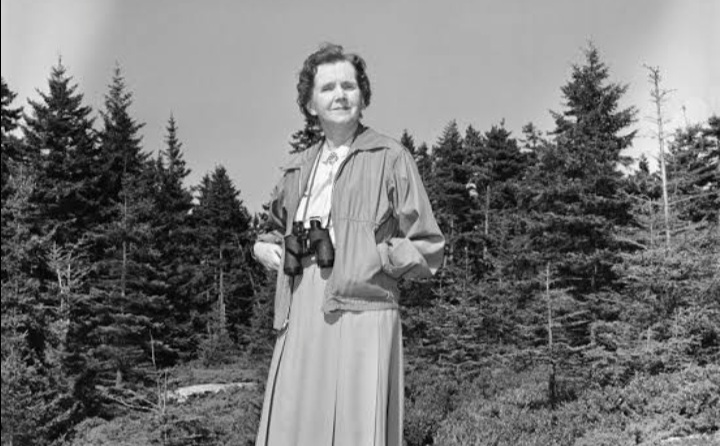Rachel Carson – A Prominent Environmentalist

By Ojugbele Omotunde
Rachel Carson, born on May 27, 1907, in Springdale, Pennsylvania, is remembered as one of the most influential environmentalists of the 20th century. From a young age, she fostered a deep love for nature, often exploring the Allegheny River and surrounding woods.
Carson pursued her passion academically, earning a Bachelor of Arts degree in biology from the Pennsylvania College for Women (now Chatham University) in 1929.
Carson began her professional journey as a biologist and writer for the U.S. Bureau of Fisheries (later the U.S. Fish and Wildlife Service). Her role involved writing articles and brochures to educate the public about marine life and conservation efforts.
Her exceptional writing skills and scientific knowledge soon earned her the position of editor-in-chief of all publications for the agency.
Carson authored several influential books on marine biology, including “Under the Sea-Wind” (1941), “The Sea Around Us” (1951), and “The Edge of the Sea” (1955). These works, known for their scientific rigor and eloquent prose, captivated a broad audience and brought the wonders of marine life to public attention.
Rachel Carson’s most renowned work, “Silent Spring,” published in 1962, marked a pivotal moment in the global environmental movement. The book meticulously documented the harmful effects of pesticides, particularly DDT, on the environment and human health.
Carson highlighted the widespread use of these chemicals and their detrimental impacts on birds, wildlife, and ecosystems.
“Silent Spring” challenged the prevailing belief that chemicals were inherently beneficial and sparked a national conversation about the environmental and health risks associated with pesticide use.
Despite significant opposition from the chemical industry and agricultural interests, Carson’s work gained widespread support from scientists, environmentalists, and the public.
Carson’s advocacy extended beyond her writings. In 1963, she testified before a Senate subcommittee, advocating for stricter regulations on pesticide use.
Her testimony was instrumental in shaping subsequent environmental legislation, including the National Environmental Policy Act (1969) and the establishment of the Environmental Protection Agency (EPA) in 1970.
Rachel Carson’s work underscored the interconnectedness of all living organisms and the need for sustainable practices.
Her emphasis on the precautionary principle remains highly relevant today, continuing to influence discussions on environmental conservation and public health.
Carson passed away on April 14, 1964, after battling breast cancer, but her legacy endures. She inspired a generation of environmentalists and laid the groundwork for ongoing advocacy and policy reforms.
Carson’s blend of scientific expertise and compelling communication transformed public understanding of environmental issues, motivating individuals and organizations to take action in preserving biodiversity, promoting sustainable practices, and advocating for environmental justice.
